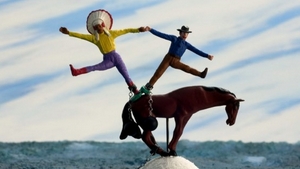
Entertainment Weekly recently published their definitive guide to the 50 best movies “you’ve” never seen. Those indiscreet quotation marks have a sincere, innocent purpose; I’m genuinely not sure who this list is meant for. From the sound of the article, it’s for everyone, but I’m fairly confident that really dedicated film fans have at least heard of movies like Idiocracy, Moon, 24 Hour Party People, Bubba Ho–Tep, and Enter the Void. (And also are aware that movies were being made before 1992.) While I’d wager the average moviegoer isn’t familiar with these titles, I’m just as confident that few among that fifty are unknown to serious cinephiles.
So how do you challenge bona fide film lovers? I should again stress my pure intentions here; EW’s efforts have actually inspired me. Now, I don’t have it in me to crank out a list boasting an equitable tally of films, but I have seen a lot of obscure, little-known, or simply underrated movies in my time. And I do love introducing people to new films they potentially haven’t even heard of (just as much as I love being introduced to such films myself).
So it comes to this: I’ve got twenty films listed below. You may have heard of some of them. You may even have seen a couple. One or two of them are less obscure than the rest, but either remain sadly forgotten by time or have just fallen by the wayside. Are they all misunderstood or overlooked classics that everybody must see? Maybe not. But each is wonderful in its own way, and very much deserving of your attention.
——————————————————————————————————————————–
Last Life in the Universe, 2003, Pen-Ek Ratanaruang– When you take the Japanese Johnny Depp out of his home country, land him in Bangkok, place him in the role of a suicide-obsessed, anal retentive librarian, and steer him into the path of two bickering sisters, you get Pek-Ek Ratanaruang’s Last Life in the Universe. You also get a surprising number of overt references to star Tadanobu Asano’s work with Japanese shock auteur Takashi Miike. Winking and nudging aside, Last Life in the Universe is genuinely sweet, contemplative, dark, gentle as a rule and violent in fits and starts as we learn more about Kenji’s family and past. It’s worth seeing for the stunning, quiet, and utterly perfect cinematography alone, but Asano makes for a solid recommendation too.
Everything is Illuminated, 2005, Liev Schreiber– I suspect more people have seen this than not; Liev Schreiber isn’t exactly an unknown, and neither is Elijah Wood. Couple that with the critical love the movie earned during its theatrical run seven years ago, and Everything is Illuminated comes close to being disqualified from this list. But it’s not an award-winning smash hit, despite being so well-received, and, well, that’s a shame. On the surface, this is a small, compact story, but it reaches very far backward through time and history and in effect becomes a much larger story in the process. Schreiber keeps us anchored, though, and so do the lead performances from Wood and gypsy punk-reggae-rock band Gogol Bordello’s Eugene Hütz.
Six-String Samurai, 1998, Lance Mungia– Quotable to its core, Six-String Samurai also makes for a strong samurai riff too. Weirdly, though, it’s the rock ‘n roll and Wizard of Oz elements that make this movie sing. One part homage to the Fleming classic, one part all-encompassing tribute to rock music– acting as both a dirge to and a celebration of its history and its future– never really adds up to anything you expect it to be, but that’s all part of its charm. Anyone with any affection for the likes of Elvis, Buddy Holly, Slash, the yellow brick road, and jidageiki films would do well to pick this up and check it out immediately.
Watermelon Man, 1970, Melvin Van Peebles– Would you think it strange if I suggested that Melvin Van Peebles’ excellent race satire made for a great companion piece with 2009’s District 9? Wikus van de Merwe has a living Kafka dream; a whitefaced Godfrey Cambridge wakes up one morning to find that he looks like, well, Godfrey Cambridge. I think I know who makes out better between the two, but while they undergo very differentphysical
Stay Hungry, 1976, Bob Rafelson– Likely the best Schwarzenegger film nobody’s ever heard of, and understandably. There’s no trace of Dutch Schaeffer, Hauser, John Matrix, the Terminator, or Harry Tasker in here at all; in fact, the Governator had “Joe Santos” on his resumé long before any of them came to identify him as an action star. Who wants to see Schwarzenegger actually act? The good news is that Jeff Bridges, not Arnold, plays the lead role in this story about a young, moneyed man getting involved in a real estate deal involving the gym at which Schwarzenegger’s character is training for the Mr. Universe competition. (Surprise.) Stay Hungry is one of those movies worth watching just so you can see actors like Bridges, Schwarzenegger, Sally Field, and Ed Begley, Jr. back in the day, but it’s also a warm, engaging film about finding oneself and understanding what really gives life its zest.
Planet of the Vampires, 1965, Mario Bava– Arguably the film that influenced some of the more iconic aspects of Ridley Scott’s Alien (and, to a lesser extent, Prometheus, whose release reintroduced Mario Bava’s slice of cheese to the world). In that sense, Planet of the Vampires deserves to be seen almost point-blank, but the movie has enough merit on its own to be worth recommending– provided you’re partial to or tolerant of the sort of schlock Bava peddles in this tale of space explorers running afoul of disembodied alien spirits on an uncharted world.
Save the Green Planet!, 2003, Jang Jun-hwan– Simultaneously one of the most bizarre and heartbreaking movies I’ve ever seen, Save the Green Planet! very easily qualifies as a film that’s not for the faint of heart. Not because it’s graphically gory, though it certainly bears its share of unsettling violence and torture, but because it’s just relentlessly sad, which takes a greater toll than overwhelming grue. Telling the tale of Byeong-gu (Shin Ha-kyun), a mentally unbalanced loner who believes he’s the only person on Earth who can save the planet from an imminent alien invasion, Save the Green Planet! reveals itself to be more about social themes (what happens to a person when they’re discarded by the world and neglected and abused for an entire lifetime?) than actual aliens– like all the best science fiction.
Punishment Park, 1971, Peter Watkins– An entry for the politically passionate among you. This film doesn’t metaphorically speak to political or social themes, or oversimplify them with glossy cinematic techniques– in fact you may be half-fooled into thinking that what you’re seeing occur on-screen is completely real. What happens when you take a group of non-actors and command them to act out a scenario in which a tribunal of authority figures cast judgment on dissenters during the Vietnam War? Genuine tempers genuinely flaring. When the two camps engage in shouting matches with each other, before the pro-war side forces the protester side to choose between serving a full term in Federal prison or spending three days in the eponymous park, the emotion is totally, honestly authentic. Punishment Park is cinéma vérité at its finest.
Redbelt, 2008, David Mamet– Maybe not Mamet at his finest, but definitely an athletic, muscular movie completely worthy of bearing his name. Largely, Redbelt plays like a neo noir, a series of twists and turns winding through the cutthroat world of mixed martial arts fighting. Someone, somewhere, is completely screwing over the noble, disciplined Mike Terry (Chiwetel Ejiofor), a Jiu-jitsu instructor incapable of catching a break; in truth, though, that’s only because Mike lets them by virtue of his sense of honor and righteousness. Look at Redbelt as a whodunit tale of intrigue, or look at it as a story about greed-driven branding corrupting Mike’s pure ideals. Either way, it’s a gripping piece of work right up until the end, where things get admittedly a bit silly (even if the finale is compelling on a totally visceral level). A must for fans of Ejiofor’s work.
Breakfast With Hunter, 2003, Wayne Ewing– An absolute must for fans of Fear and Loathing in Las Vegas, The Rum Diary, and any other piece of cinema about the late, great Hunter S. Thompson in any way, shape or form. This may well be the best Thompson film ever; that’s entirely due to the fact that it’s real. If you’ve ever wanted to see unfiltered Thompson on screen before, this is one of the only ways you’re going to get it, and the effect is pretty spectacular. Forget about Ewing’s competence as a documentarian and filmmaker, every second Hunter remains on screen proves endlessly riveting just by virtue of his magnetic personality.
Sword of Doom, 1966, Kihachi Okamoto– Perhaps not the most overlooked film in samurai canon, but definitely one of the strongest of its genre that gets the least recognition comparative to its quality. Sword of Doom makes for another movie on this list that you must be in the mood for; it’s tragedy through and through, violent, visceral, and haunting down to its iconic climactic freeze-frame. Okamoto’s grim tale of an amoral, dishonorable samurai fleeing from his own crimes also contains one of the truly classic fight scenes in jidageki cinema, featuring none other than Japanese treasure Toshiro Mifune.
Sin Nombre, 2009, Cary Fukunaga– I’ve written about Sin Nombre on this site before, but I feel like it bears another mention; it really is that good. And tragic. And underseen. Fortunately, it’s up on Netflix Instant, so if you have that service then set aside an hour and forty minutes to view it for yourself. You won’t be disappointed.
Keoma, 1976, Enzo G. Castellari– Franco Nero at his finest. For some, Django might fit that particular bill far better, but for my money no Nero picture reaches quite the same peaks of loony, melodramatic bliss as Keoma. The one caveat is that Keoma bears the seal of Castellari, the man responsible for the original Inglorious Bastards; he’s better known for his crime films than for his westerns. That’s not much of a caveat, though, since Keoma is largely thought to be the last great spaghetti western, and it’s easy to see why. The volume on Keoma is turned all the way up in every respect, and the spectacle Castellari orchestrates is captured with some truly beautiful, lurid camerawork.
The Quiet Family, 1998, Kim Ji-woon– Before he made A Bittersweet Life, The Good, the Bad, and the Weird, and, more recently, I Saw the Devil, Kim Ji-woon made The Quiet Family. A compact, utterly dark comedy about a family running a lodge for hikers in the mountains outside of Seoul, The Quiet Family plays like a tragedy with a laugh track; Kim pits his ensemble cast (which boasts Choi Min-sik of Oldboy fame and Song Kang-ho of The Host) against an escalating series of mishaps and leads them into a near-apocalyptic climax. Speaking of Miike, you may recognize this plot from his subsequent loose remake, Happiness of the Katakuris. There’s no claymation here, but the filmmaking is far, far tighter.
Wasabi, 2001, Gerard Krawczyk– Not necessarily a “great” film, but certainly an enormous amount of fun. What’s not to like about an hour and a half of Jean Reno taking down legions of nefarious foreign bad guys as he traipses about Japan with the half-French, half-Japanese daughter he never knew he had? Krawczyk doesn’t mine this film for deep truths about the brotherhood of mankind or anything of the sort, but he does cook up an immensely satisfying bit of entertainment. And who doesn’t love Jean Reno?
Videodrome, 1983, David Cronenberg– I’m pushing it on this one. I’m willing to concede that more people than not have seen what’s generally regarded as one of David Cronenberg’s most iconic films. At the same time, the most recent leg of his career has seen him step very far away from his body horror roots and attempt something new. Call it navel-gazing, call it artistic exploration, but it’s wildly different from the earliest section of his body of work. (Accepting Cosmopolis, which I have yet to see.) So cut back to Videodrome, an alchemical mixture of sex and grotesque violence all set to a tune about media and consumer culture; there’s a stark difference between the new flesh and the Russian mob.
A Town Called Panic, 2009, Stéphane Aubier &Vincent Patar– I’ve written about this one too. Nothing says “unbridled, joyful nuttiness” better than a stop-motion animation film based on a French TV show, where the stars are a horse, a cowboy, and an Indian.
Big Fan, 2009, Robert D. Siegel– Alfred Hitchcock once suggested that actors should be treated like cattle; in other words, actors are present so that directors can use them to heighten the experience of watching a film. Sometimes, I think he’s right on the money, but sometimes, a performance matters beyond the way the director shapes it. Big Fan houses just one such performance. We don’t think of Patton Oswalt as a dramatic actor, but he’s totally captivating here as a too-far-gone fan whose deep-rooted obsession with the New York Giants takes him down dark paths. Siegel, the man who wrote The Wrestler, has presence here as well, but only just– he’s mostly dedicated to staying out of Oswalt’s way.
The Three Burials of Melquiades Estrada, 2005, Tommy Lee Jones– A low key western variant directed with grace and assurance by Tommy Lee Jones, both sitting behind the camera and standing in front of it. Like many great contemporary films in its genre, The Three Burials… treats its landscapes like a character in its cast, which is brimming with talent– Jones leads the pack, but he has Barry Pepper alongside him for the ride, and great supporting work from Dwight Yoakam, Melissa Leo, and January Jones.
Certified Copy, 2011, dir. Abbas Kiarostami– I’m ending this list on another movie I’ve written about. If that seems like a lazy, out-of-steam tactic, well, maybe it is, but then again I may just genuinely love this film and feel like trumpeting its cause once more. This made my best-of list for 2011, and marks yet another masterwork in the career of Iranian great Abbas Kiarostami; it’s small, but intricately layered and composed. Certified Copy dances around a central question that some might find frustrating, but there’s no arguing how deftly Kiarostami, Juliette Binoche, and William Shimell execute that dance.
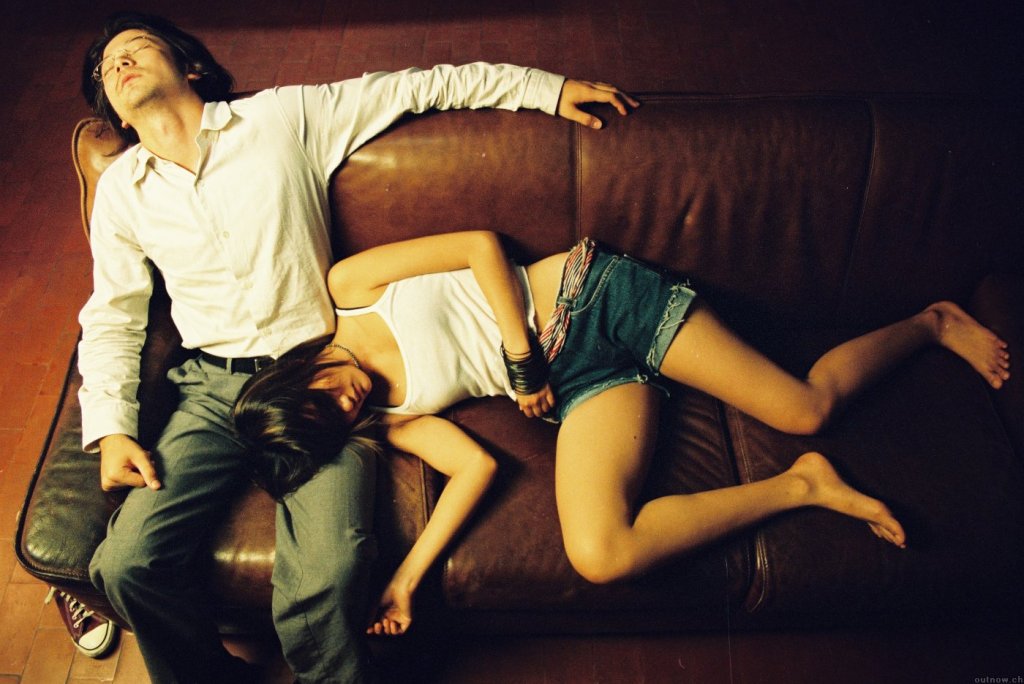
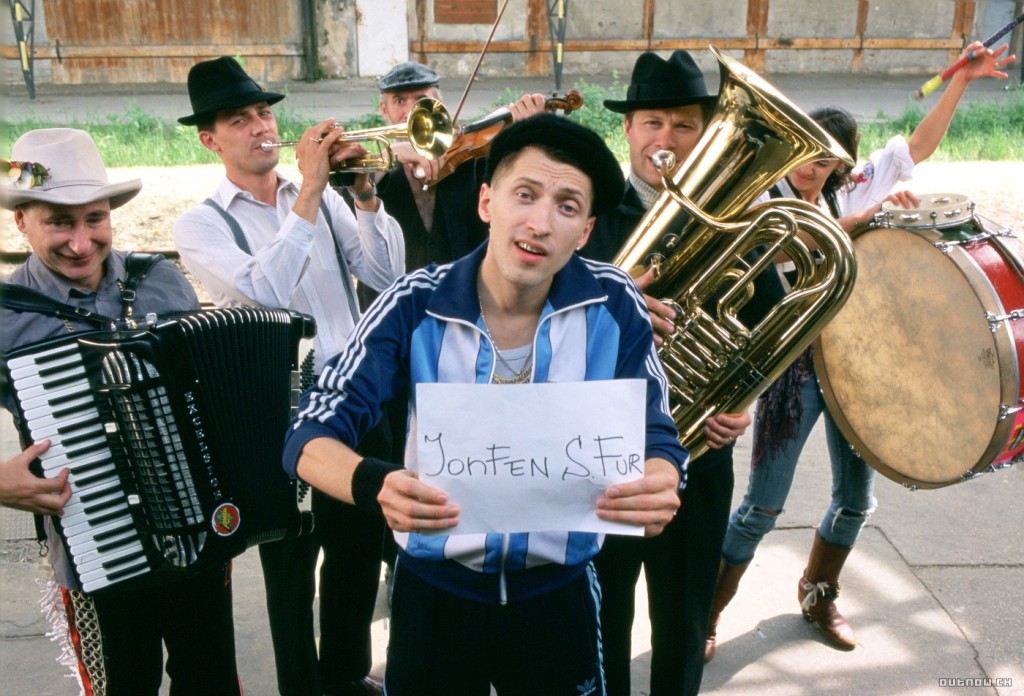



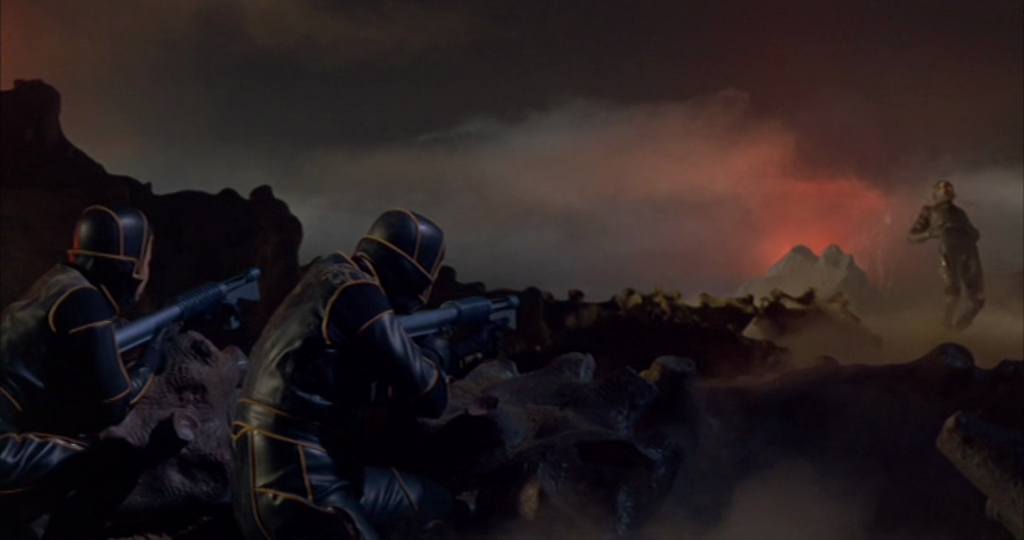

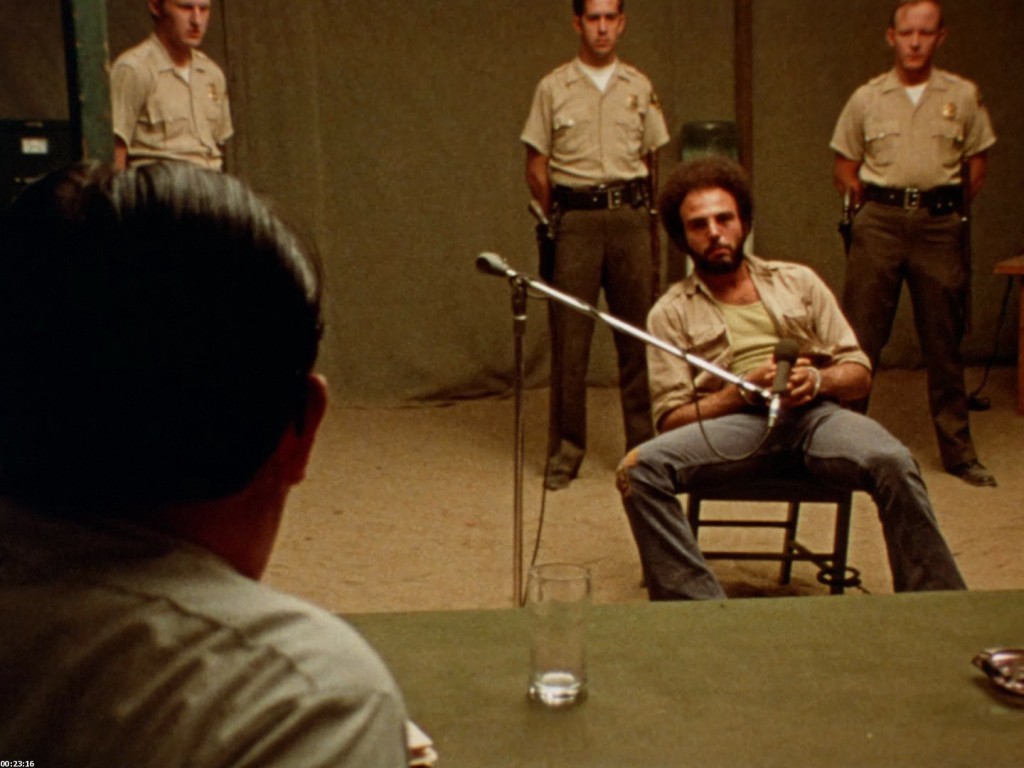







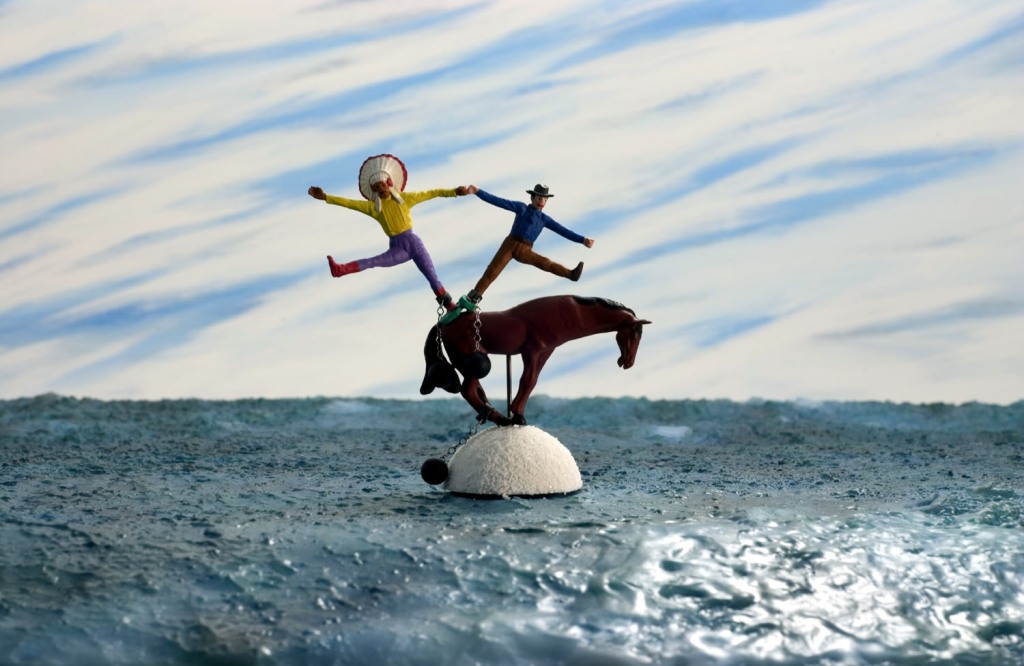



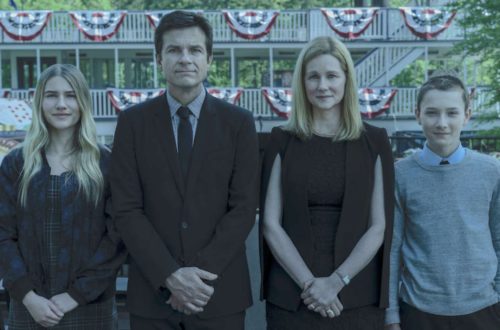
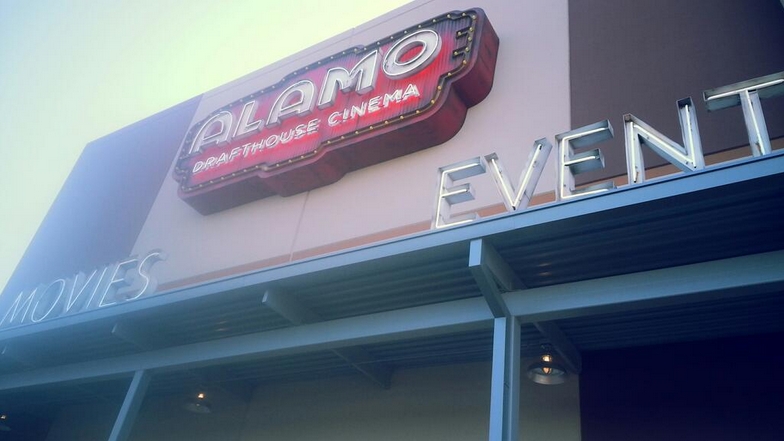
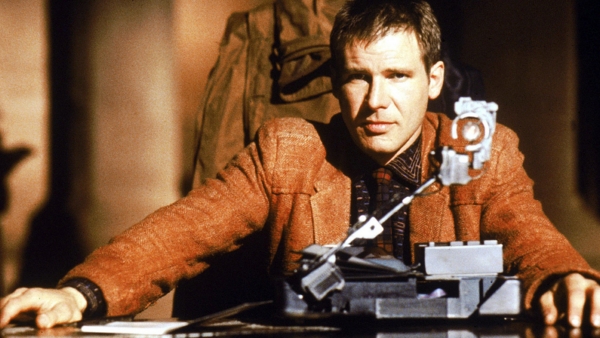
10 Comments
FlixChatter
I did see Everything Is Illuminated at TIFF. Agree it’s a good movie but it’s a tad depressing. I really want to see Sin Nombre and Certified Copy, esp. the latter, I like unconventional romance drama.
Andrew Crump
Well, good news– if you’ve got Netflix Instant, both Sin Nombre and Certified Copy are available for your viewing pleasure. The latter’s really and truly phenomenal. If you’re a fan of Before Sunset/Sunrise, I think you’ll love it, though it’s a bit trickier.
Thanks for stopping by, Ruth!
RidgeRacer4
Awesome write up and while I’ve seen some of these, there’s already 10 that I’m dying to check out…especially Watermelon Man, Six String Samurai and Planet of the Vampires.
I’m actually quite taken a back that you put Wasabi on here. Loved it almost a decade ago and have been meaning to give it another spin so thanks for the reminder:)
Andrew Crump
Planet is on Instant, so there’s that. I think you’ll really dig Six String Samurai, for sure, and I REALLY hope you check out Watermelon Man. It’s Van Peebles at his finest, if you ask me.
I first watched Wasabi more than a decade ago as well, and my undying appreciation of Reno led me to put it on this list. I can watch nearly anything he stars in. I wonder if the movie will play differently for you with so much time in between your last viewing?
The Warning Sign
Nice job compiling this list. I have only seen three of these — Sin Nombre, Videodrome and Big Fan — but all are worthy of their inclusions. I’m really interested in seeing Breakfast with Hunter, but it’s not on Netflix and it looks like the cheapest way to purchase is $30+. Do you know of a better way to find that one?
Andrew Crump
Honestly, I picked up a copy of that DVD a looooooong time ago. It’s pretty obscure and I’m not sure how one would go about easily obtaining a copy of it. I’d loan you mine but, you know.
If I find anything else about it I’ll let you know. In the meantime, I hope you check out some of the movies on here you haven’t seen (and Big Fan is really, really great!).
Jessica
Great list, Andrew! I have seen Everything is Illuminated, but probably wouldn’t have had I not been a fan of the book first. I’ve had Certified Copy in my Netflix instant queue, but haven’t gotten around to watching yet. The Before Sunrise/Sunset reference just hooked me. Watching now.
Andrew Crump
You know, I’ve been trying to find a copy of Jonathan Safran Foer’s book for a while now, and I’ve come up with bupkiss. Libraries are letting me down!
Let me know what you think about Certified Copy. It’s pretty great, and I don’t think it got the audience it really deserved.
Jessica
I liked Certified Copy. There were a lot of good life quotes in that movie, and now I really want to see F is for Fake as well after reading your full review…I can’t believe the libraries don’t have JSF’s book! You should lodge a formal complaint.
Andrew Crump
Well, now check out F For Fake! That’s a favorite of mine. And hey, I love my library– the book happens to be in another branch, just not my branch! I wish it was though!